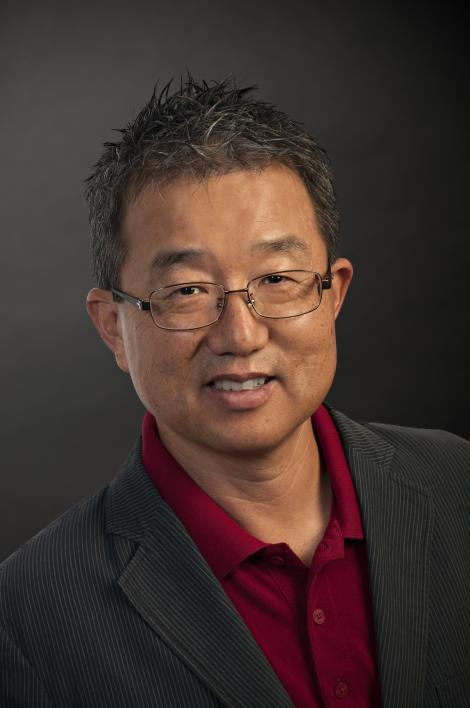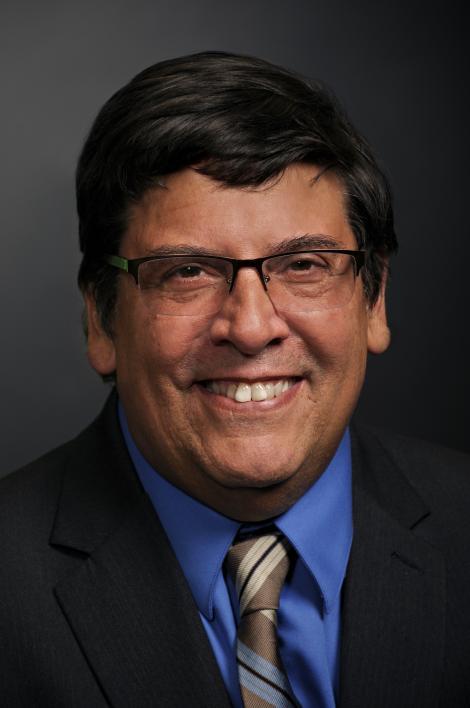
ASU professors' highly cited research shapes the future of business
Two W. P. Carey School faculty are among the world’s most influential scholars in their fields
Until Arizona State University supply chain management Professor Thomas Choi conducted his groundbreaking study, few researchers had looked at social networks among suppliers. While everyone was looking at buyer-supplier relationships, Choi was intrigued by vertical relationships across multiple tiers of supply chains and horizontal relationships among suppliers.
And not many in the business community knew that family-owned firms would take significant risks until Regents' Professor of management Luis Gomez-Mejia challenged the prevalent notion that family-owned firms are more risk-averse than publicly owned firms.
These highly cited scholars are producing pioneering research to discover what makes businesses more successful, innovative, and flexible. Their findings influence businesses of all sizes, from large publicly traded companies to startups, and help prepare future business leaders in the W. P. Carey School of Business programs.
Choi and Gomez-Mejia are two of 96 global academics listed in the economics and business category of the 2018 Highly Cited Researchers list of more than 6,000 scholars from around the world whose studies were among the top 1 percent of most-cited publications in their field over the past 10 years. Gomez-Mejia was also listed in 2015, 2016, and 2017.
Going upstream in the supply chain

After decades leading the study of the upstream side of supply chains in various forms of networks, Choi is illuminating the surprising ways purchase managers play a lead role in cyber defense, the rise of financial technology companies in the supply chain, and hidden suppliers, to name a few.
"My dissertation helped me see the social network perspective among suppliers,” he said. “It seemed natural to consider these networks in the existing buyer-supplier literature at the time.”
That lesson launched Choi’s first big study and his second most highly cited paper, “An Exploration of Supplier Selection Practices Across the Supply Chain,” which was published in the Journal of Operations Management in 1996.
Today, he has published 56 papers that have been cited more than 13,213 times. “My doctoral students have been a major part of doing the research,” Choi said.
His most highly cited paper, “Supply Networks and Complex Adaptive Systems: Control Versus Emergence,” published in the Journal of Operations Management in 2001, has been cited 1,305 times. Choi has seven papers that have been cited more than 500 times.
His recent paper, “Purchasing Managers Have a Lead Role to Play in Cyber Defense,” was published in Harvard Business Review online July 10, 2018. As executive research director of CAPS Research, a joint venture between Arizona State University and the Institute for Supply Management, he’s driving new research agenda and preparing for four events with supply management leaders from around the world. Choi continues to add to his growing body of research around complex adaptive supply networks in the aptly named research accelerator CASN-RA, a research group made up of scholars from around the world interested in supply networks and complexity.
Understanding family businesses

Gomez-Mejia’s most highly cited research paper (2,061 citations) asks a question that’s top-of-mind for family owners, institutional investors, banks and nonfamily owners: Are there some unique attributes in terms of leadership style, educational background, personality traits or family dynamics that explain why some family firms are capable of making business decisions with financial rather than socioemotional criteria in mind? For many years, family-owned firms were believed to be more risk-averse than publicly owned firms.
But Gomez-Mejia argued that for family firms, the primary reference point is the loss of their socioemotional wealth, and to avoid those losses, family firms are willing to accept a significant risk to their performance; yet at the same time, they avoid risky business decisions that might aggravate that risk.
He examined 1,237 family-owned olive oil mills in southern Spain that faced the choice during a 54-year period of becoming a member of a cooperative, a decision associated with loss of family control but lower business risk, or remaining independent, which preserves the family’s socioemotional wealth but greatly increases its performance hazard. The study found family firms may be risk-willing and risk-averse at the same time.
“Many family firms around the world emerge and survive through generations not because they are the most efficient or most profitable form of organization but because they meet the socioemotional needs of their owners,” Gomez-Mejia explained.
Besides family businesses, Gomez-Mejia focuses his research on the relationships of international management, strategic management and executive compensation.
“My body of work has transitioned over time across many areas, starting with human resource management and then moving on to strategy, and during the past 15 years into entrepreneurship and specifically family business,” Gomez-Mejia said, adding that his theoretical perspective has been enriched by working with colleagues from these different areas. “The core question guiding my research has always been why people in organizations make the decisions they do.”
He developed decision-making models early on that incorporate economic and behavioral elements to predict personal and organizational decisions.
“My colleague Bob Wiseman, who was at ASU in the 1990s and is now at Michigan State, and I developed the so-called ‘behavioral agency model’ that we have used to analyze a wide range of organizational choices such as diversification, internationalization, innovation, competitive aggressiveness, and general risk-taking,” Gomez-Mejia said.
Later, he extended the model to the case of family businesses, where both economic and noneconomic factors play a role in decision-making.
“I was surprised when I reviewed the management literature at the beginning of the 2000s and not a single paper on family business had been published in the top management journals," Gomez-Mejia said. "And paradoxically the statistics showed that close to 95 percent of firms are controlled by families. Hence, I saw this as a great opportunity to analyze a wide range of phenomena that differ between family and nonfamily firms, such as risk-taking, succession, diversification, internationalization, innovation and the like, and utilized the behavioral agency model that combines elements of economic theory and organizational behavior to study the noneconomic drivers of family firms.”
Growing up in a family that owned and operated a business allowed Gomez-Mejia to draw from personal experiences in analyzing many of his research issues: “I knew deep down that family firms represent a very different kind of animal than large publicly traded corporations, the ones that preoccupy most of the management literature.”
Of Gomez-Mejia’s 31,000-plus citations to his publications listed in Google Scholar, 84 exceed 50 citations, 62 exceed 100 citations, 34 exceed 300 citations, 30 exceed 400 citations and eight exceed 1,000 citations.
One of the most published authors among the "big eight" management journals, he has published more than 200 articles in the Academy of Management Journal, Academy of Management Review, Strategic Management Journal, and Administrative Science Quarterly, among others. In 2016, Gomez-Mejia was also selected to the Thomson Reuters Highly Cited Researchers list, ranking in the top 1 percent of researchers in economics and business worldwide.
His upcoming research includes, "Compensation: A general management approach," "Governance, directors, and executive pay," and "Family business governance: What we know and what we have yet to learn."
Given that family ownership is a global phenomenon, Gomez-Mejia’s research is being conducted in approximately 20 countries — including Sweden, Switzerland, Italy, France, Spain, China, Chile, Dominican Republic, and Argentina — in addition to the U.S.
“It is a great honor to see that your work is having a major impact on the research of other scholars,” Gomez-Mejia said. “In the end, this is the real proof that your publications do make a difference on the field and that they are not just a grocery list of papers in your CV. To be recognized in this manner comes as a surprise to me, as I still think of myself as a struggling researcher who gets lots of rejections. This gives me the energy to keep on working even harder since someone appears to be listening out there in the world.”
Choi and Gomez-Mejia join 11 other professors across the entire ASU university system (which has approximately 3,000 faculties) on the Highly Cited Researchers list.
Latest news
- Pop culture is key to effective teaching
How a management and entrepreneurship professor uses Ted Lasso and other pop-culture touchstones…
- Artificial intelligence in business master's degree helps Nathan Merriman combine business strategy with technology
Nathan Merriman (MS-AIB '25) had been working in business for a few years when he learned about…
- How the Executive MBA empowered Scott Gates to be a mission-driven leader
Scott Gates (BS Marketing '04, Executive MBA '15) had a very positive experience during his…